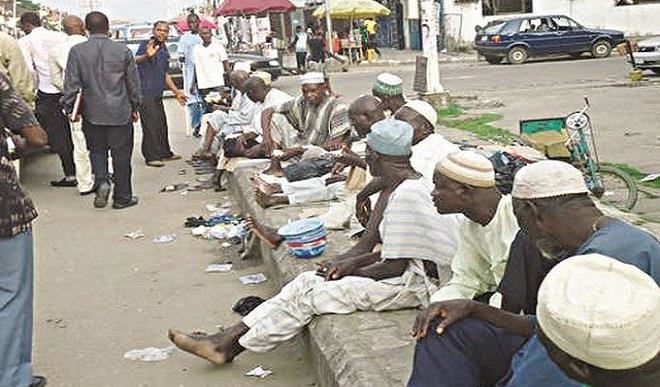Three states ban street begging
Niger State has now joined two other Northern states to ban street begging. The state’s Commissioner for Information Mohammed Sani Idris, who announced this in Minna, said the ban does not affect the almajiri system of education. Idris said a committee has been set up to fine-tune the modalities for the policy’s implementation to ensure […]

Niger State has now joined two other Northern states to ban street begging. The state’s Commissioner for Information Mohammed Sani Idris, who announced this in Minna, said the ban does not affect the almajiri system of education. Idris said a committee has been set up to fine-tune the modalities for the policy’s implementation to ensure that it does not fail like previous arrangements.
Idris said anyone caught begging either on the streets or elsewhere will be arrested and prosecuted in line with the existing legislation. He said street beggars found not to be indigenes of the state would be arrested and transported to their states of origin. He said, “We are not banning almajiri system of education but they (almajiri) must not go on the street for begging.” He also said there is a synergy among Northern governors to put a stop to street begging in whatever form.
Governor Abdullahi Umar Ganduje of Kano State was the first in recent times to announce the ban on street begging. He announced the decision during the launch of Basic Education Service Delivery for All (BESDA) and distribution of offer of appointment to 7,500 volunteer teacher sat Sani Abacha Stadium, Kano, two weeks ago. He said the new policy will give the almajirai other types of education. He said while while they will continue to acquire their knowledge of the Holy Qur’an, the kids would also learn English and Arithmetic. Ganduje said, “When Almajiri are caught begging, it is not only that beggar is caught, but their parents or guardians would be taken to court for disrespecting our laws.”
Nasarawa State Government soon followed suit and prohibited street begging in the state. Governor Abdullahi Sule said parents of children caught begging would be punished. He said at the inauguration of the Child’s Rights Protection Executive Order in Lafia that parents of children who beg would be punished. He said, “Without sounding immodest, this law apart from the prohibition of street begging, provides punishment for parents who out of irresponsibility throw away their children to street begging. In this regard, government has taken measures to enrol our children into Tsangaya Schools with a view to addressing the menace.” According to Sule, the safety, security, well being, good health, and education as well as the future of children in the state will be guaranteed with the implementation of the Child’s Right Protection Executive Order, 2005.
These three Northern states have now set a precedent that is likely to spread like wild fire and be copied by other states. It is a good start, but it looks like comprehensive consultation involving all stakeholders did not take place prior to adoption of these measures. Child begging in the North is a complex social problem in which parents, mostly in poor rural households, hand over their children to itinerant clerics allegedly to acquire Islamic education far away from home. The system is hundreds of years old but if it served a good purpose decades ago, it is now totally counterproductive.
We also wonder whether arresting children as they beg in the streets is the real answer to this problem. These kids were uprooted from their homes and brought to the cities with no adequate plan for their accommodation or feeding. They are therefore the victims of a system gone awry. The culprits are their parents and the clerics. The best solution is to arrest all the clerics who brought the almajirai into the towns, force them to take the kids back to their parents, and threaten to jail them if they ever bring the kids back into the cities. That is the quickest way to eradicate the scourge, but other measures should follow to provide facilities for education, religious and modern, in all communities so that they do not have any reason to send their children as almajirai. This formula was tried by the Aliyu Wamakko administration in Sokoto State. It is the good way to go.
